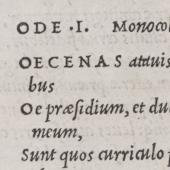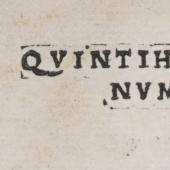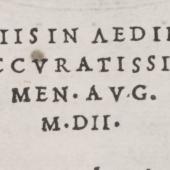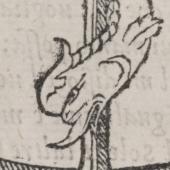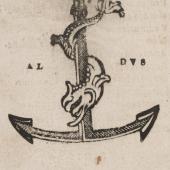Enchiridia, counterfeits and the dolphin-and-anchor device
Aldus Manutius
The series of editions of classical Latin and Greek authors and Italian vernacular poets published as pocket-size books (enchiridia) was Aldus’s most successful editorial innovation. Starting with the Virgil published in 1501, these portable editions, often bearing his sophisticated device of the dolphin-and-anchor, immediately caught the imagination of wealthy European literati and collectors. Their slim and elegant proportions contributed towards a permanent change in the physical appearance of Western books, and secured Aldus enduring fame. But fame and success instigated an equally successful clandestine production and marketing of counterfeit editions by both Italian and foreign competitors, operating outside the Venetian territory–mainly in Lyons–and therefore untouched by and in full immunity from printing privileges issued to Aldus by the Venetian Senate.
